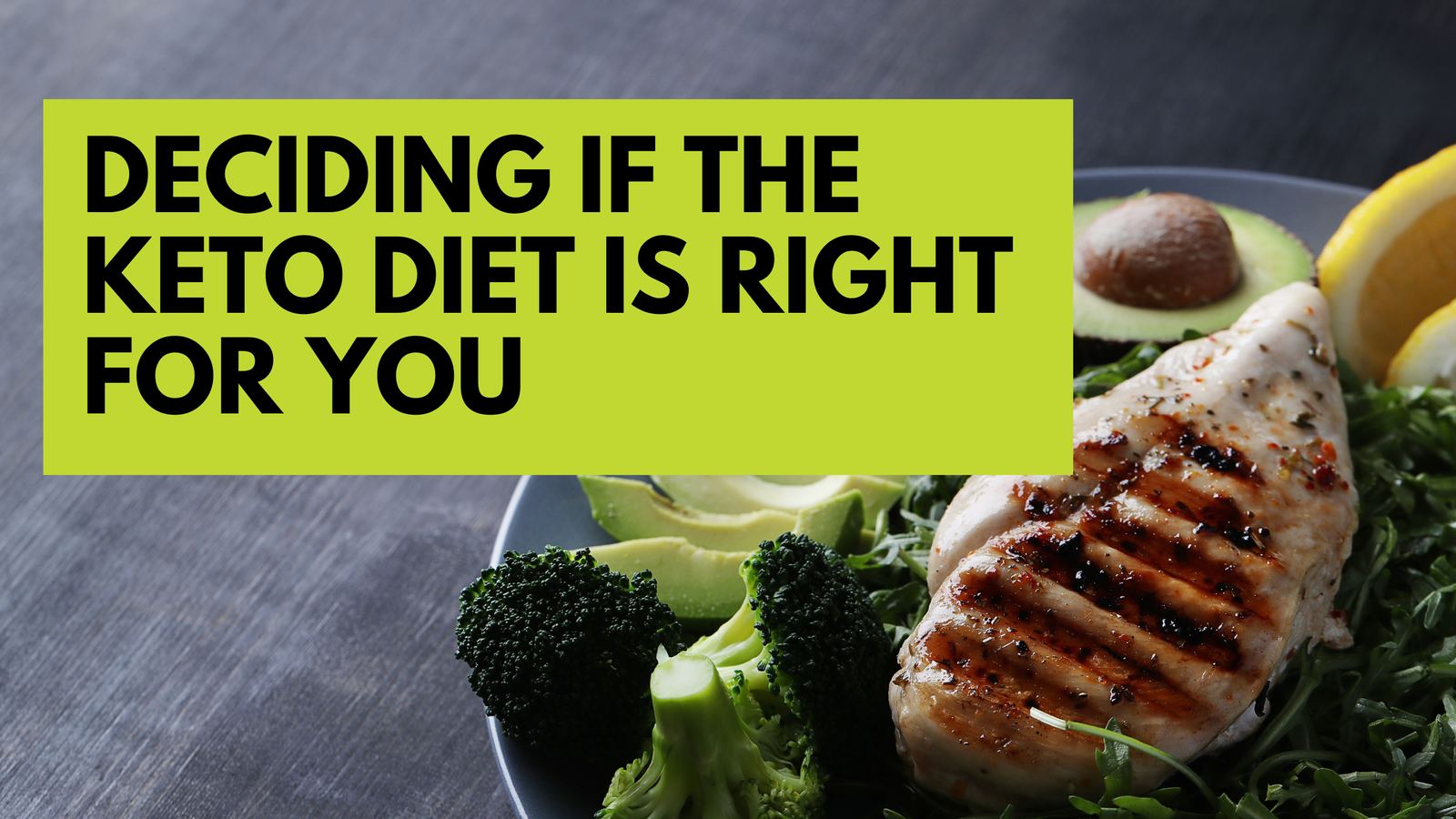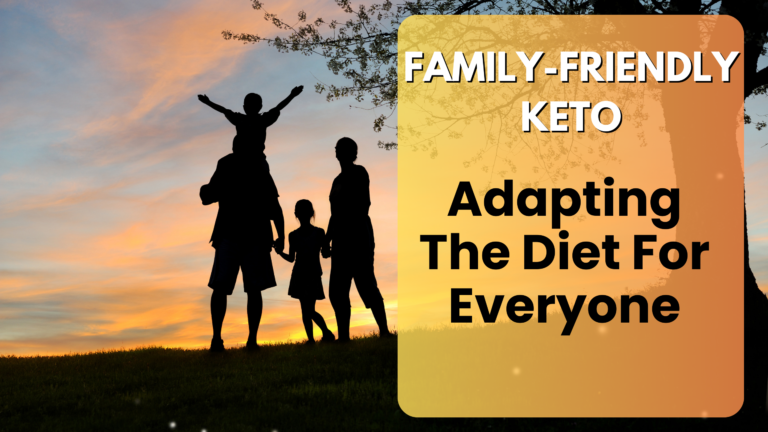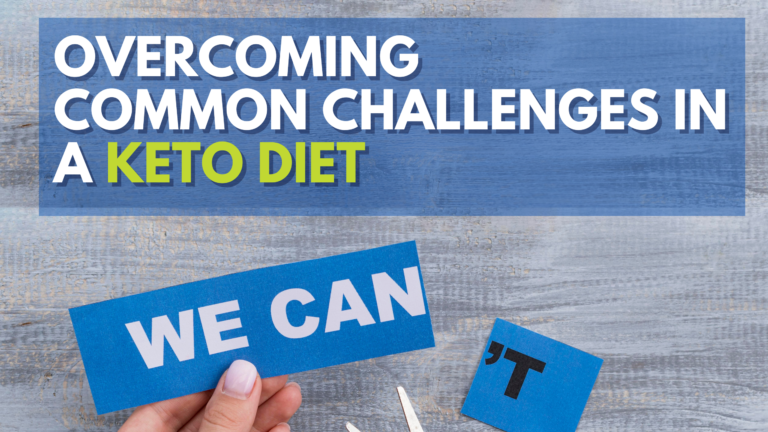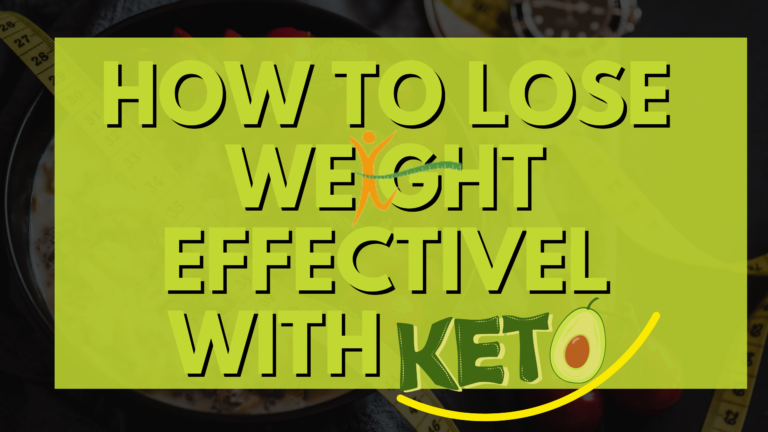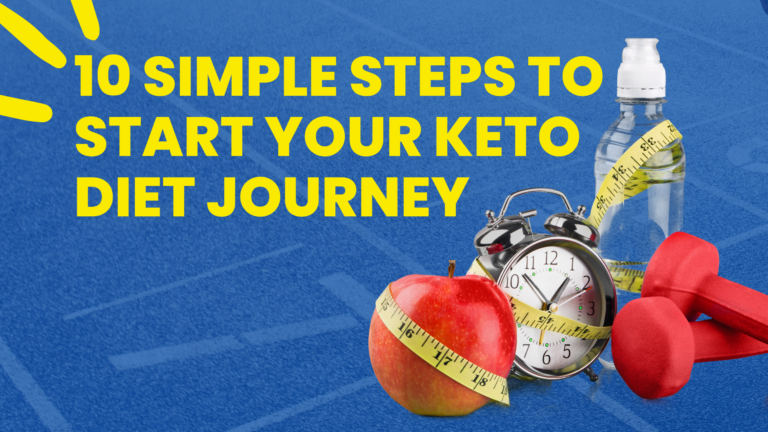Deciding If The Keto Diet Is Right For You
Thinking about trying the keto diet but not sure if it’s the right fit for you? Look no further! This article will provide you with all the information you need to make an informed decision. From explaining the basics of the ketogenic diet to discussing its potential benefits and drawbacks, we’ll help you weigh the pros and cons to determine if the keto diet aligns with your health and lifestyle goals. So, whether you’re eager to shed those extra pounds or simply want to understand more about this popular eating plan, read on to discover if the keto diet is the right choice for you.
What is the Keto Diet?
Ketogenic diet definition
The Keto Diet, short for ketogenic diet, is a low-carb, high-fat diet that has gained popularity in recent years. It involves drastically reducing your carbohydrate intake and increasing your fat consumption. By doing so, your body is forced to enter a state called ketosis, where it starts using fat as its primary source of energy instead of glucose from carbohydrates.
How it works
When you restrict carbohydrates, your body’s usual source of energy, it has to find an alternative fuel source. In the absence of carbohydrates, your liver begins to convert fats into molecules called ketones. These ketones are then utilized by your body for energy, including your brain. In this way, the Keto Diet aims to shift your metabolism from relying on carbohydrates to utilizing fat for fuel.
Types of ketogenic diets
There are several variations of the ketogenic diet, each with slightly different macronutrient ratios. The standard ketogenic diet (SKD) typically involves consuming 75% fat, 20% protein, and only 5% carbohydrates. Other variations include the targeted ketogenic diet (TKD) and the cyclical ketogenic diet (CKD), which incorporate small amounts of carbohydrates at specific times or on designated days.
Health Benefits of the Keto Diet
Weight loss
One of the primary reasons people turn to the Keto Diet is for weight loss. By reducing carbohydrate intake and increasing fat consumption, the body is more likely to use stored fat as fuel, resulting in weight loss. Additionally, the Keto Diet can help control appetite and reduce cravings, making it easier to adhere to a calorie deficit.
Reduced inflammation
Inflammation is a natural response by the body to protect against injury or infection. However, chronic inflammation can contribute to various health issues, including heart disease, diabetes, and certain cancers. Studies have shown that the Keto Diet may have anti-inflammatory effects, which could potentially reduce the risk of chronic diseases associated with inflammation.
Improved mental clarity
Another potential benefit of the Keto Diet is improved mental clarity and focus. Many people report experiencing increased mental sharpness and reduced brain fog when following a ketogenic eating plan. This may be due to the stable energy supply provided by ketones and the absence of blood sugar spikes and crashes that can occur with high-carbohydrate meals.
Reduced risk of chronic diseases
Research suggests that the Keto Diet may have protective effects against certain chronic diseases. For example, studies have shown that the diet can improve blood sugar control in individuals with type 2 diabetes. Additionally, the Keto Diet has been investigated for its potential benefits in managing epilepsy, Alzheimer’s disease, and even some types of cancer. However, more research is needed to fully understand these potential benefits.
Considerations Before Starting the Keto Diet
Consulting a healthcare professional
Before embarking on any new diet or lifestyle, it’s important to consult a healthcare professional. They can assess your individual health needs, provide personalized guidance, and help determine if the Keto Diet is appropriate for you. They can also monitor your progress and make any necessary adjustments along the way.
Underlying health conditions
Certain health conditions may require additional considerations when following the Keto Diet. For instance, individuals with pancreatitis, liver disease, or gallbladder problems may need to modify their fat intake or avoid the diet altogether. Additionally, individuals with a history of eating disorders or disordered eating patterns should approach the Keto Diet with caution and seek guidance from a healthcare professional.
Personal goals and lifestyle
It’s important to consider your personal goals and lifestyle when deciding if the Keto Diet is right for you. If weight loss is your primary goal and you enjoy consuming high-fat foods, the Keto Diet may be worth exploring. However, if you have a busy schedule that makes meal planning and preparation challenging, or if you are not willing to give up certain high-carbohydrate foods, the Keto Diet may not be the best fit for you.
Potential side effects
Like any dietary change, the Keto Diet can have potential side effects. Some people may experience what is commonly referred to as the “keto flu,” which may include symptoms such as fatigue, headaches, nausea, and irritability. It usually subsides as the body adapts to ketosis. Additionally, the Keto Diet may lead to digestive issues, such as constipation or diarrhea. It’s important to stay hydrated, consume enough fiber, and listen to your body’s signals.
Is the Keto Diet Safe?
Short-term safety
When followed correctly and under the guidance of a healthcare professional, the Keto Diet is generally considered safe in the short term. However, it’s important to note that certain populations, such as pregnant or breastfeeding women, children, and individuals with specific medical conditions, may need to approach the diet with caution or avoid it altogether. It’s always best to consult with a healthcare professional before making any dietary changes.
Long-term safety
The long-term safety and potential effects of the Keto Diet are still being researched. Some concerns have been raised regarding the potential impact on heart health due to the high intake of saturated fats. However, evidence supporting this concern is inconclusive. As with any long-term dietary approach, it’s important to maintain a balanced and varied diet to ensure optimal nutrient intake and overall health.
Understanding the Keto Diet’s Requirements
Macronutrient ratios
The Keto Diet is characterized by specific macronutrient ratios, which generally involve a high intake of healthy fats, a moderate intake of protein, and a low intake of carbohydrates. As mentioned earlier, a typical ratio is 75% fat, 20% protein, and 5% carbohydrates. These ratios are intended to induce and maintain a state of ketosis, where the body is primarily using fat for energy.
Sources of healthy fats
Since the Keto Diet relies heavily on fat consumption, it’s important to choose healthy sources of fat. This includes avocados, olive oil, fatty fish, nuts, seeds, and coconut oil. It’s best to focus on unsaturated fats, such as those found in plant-based oils and fatty fish, while limiting saturated fats, such as those found in red meat and high-fat dairy products.
Allowed and restricted foods
The Keto Diet allows for a variety of foods that are low in carbohydrates and high in healthy fats. Foods commonly consumed on the diet include meat, fish, eggs, nuts, seeds, avocados, non-starchy vegetables, and full-fat dairy products. However, the diet restricts or limits intake of high-carbohydrate foods, such as grains, legumes, most fruits, sugary snacks, and starchy vegetables.
Meal planning and preparation
Meal planning and preparation are crucial when following the Keto Diet. This ensures that you have the necessary ingredients on hand and reduces the temptation to reach for convenient, high-carbohydrate options. It’s recommended to plan your meals in advance, incorporate a variety of nutrient-dense foods, and be intentional about balancing your macronutrients to meet the diet’s requirements.
The Keto Diet and Weight Loss
How keto aids in weight loss
The Keto Diet can aid in weight loss through several mechanisms. First, when you reduce your carbohydrate intake, your body depletes its glycogen stores and starts breaking down stored fat for energy. This can lead to a calorie deficit and subsequent weight loss. Second, the high-fat, moderate-protein nature of the diet can help control hunger and reduce overall calorie intake. Lastly, the diet’s influence on insulin levels may also play a role in weight management.
Effectiveness for different individuals
The effectiveness of the Keto Diet for weight loss can vary among individuals. Some people may experience rapid weight loss at the beginning of the diet due to water loss and glycogen depletion. However, sustained weight loss may require long-term adherence, lifestyle modifications, and an overall balanced approach to nutrition. It’s important to remember that weight loss is a complex process influenced by various factors, and individual responses may vary.
Potential Side Effects of the Keto Diet
Keto flu
One of the most commonly reported side effects of the Keto Diet is the “keto flu.” It typically occurs during the initial phase of transitioning into ketosis and can include symptoms such as fatigue, headaches, nausea, dizziness, and irritability. These symptoms are often temporary and subside as the body adapts to utilizing ketones for energy. Staying hydrated, replenishing electrolytes, and gradually easing into the diet can help mitigate these effects.
Digestive issues
The Keto Diet may also cause digestive issues, such as constipation or diarrhea. This is mainly due to the significant reduction in fiber intake from cutting out high-carbohydrate foods. It’s important to ensure adequate fiber intake through low-carb, high-fiber sources, such as non-starchy vegetables, nuts, and seeds. Drinking plenty of water and considering a fiber supplement if needed can also help alleviate these digestive issues.
Nutrient deficiencies
Restrictive diets, including the Keto Diet, may increase the risk of nutrient deficiencies if not properly planned and balanced. Since the diet limits or eliminates certain food groups, such as grains and certain fruits, it’s important to ensure adequate intake of essential vitamins and minerals. Including a variety of nutrient-dense foods, considering appropriate supplementation if required, and consulting with a healthcare professional can help address potential nutrient deficiencies.
Mental and Cognitive Effects of the Keto Diet
Improved mental focus
Many individuals report experiencing improved mental focus, clarity, and productivity when following the Keto Diet. The steady supply of ketones to the brain is believed to enhance cognitive function, mental performance, and concentration. Additionally, the stabilization of blood sugar levels that occurs with the diet’s low-carbohydrate nature may contribute to better mental focus and reduced brain fog in some individuals.
Potential impact on mood
The Keto Diet has been suggested to have a positive impact on mood for some individuals. Some studies indicate that the diet may reduce symptoms of depression and anxiety. This may be attributed to the stabilizing effect the diet has on blood sugar levels, as blood sugar fluctuations can influence mood and energy levels. However, more research is needed to fully understand the relationship between the Keto Diet and mood regulation.
Adapting to the Keto Diet
Initial adjustment period
When starting the Keto Diet, most individuals go through an adjustment period as the body transitions into ketosis. During this time, you may experience the aforementioned “keto flu” symptoms. It’s important to be patient with your body as it adapts to this new way of fueling itself. Gradually reducing carbohydrate intake, staying hydrated, replenishing electrolytes, and ensuring adequate rest can help ease the transition.
Common challenges and strategies to overcome them
Like any dietary change, the Keto Diet may present its own set of challenges. Some common challenges include cravings for carbohydrates, social situations involving high-carb foods, and difficulties with meal planning and preparation. Strategies to overcome these challenges include finding low-carb alternatives for your favorite foods, seeking support from like-minded individuals or online communities, planning ahead for social events, and experimenting with new recipes and meal ideas to keep things interesting.
Alternatives to the Keto Diet
Other low-carb diets
If you’re considering a low-carb diet but the Keto Diet doesn’t seem like the right fit for you, there are other low-carb options to explore. These include diets such as the Atkins Diet, the Mediterranean Diet, or the DASH Diet, which all incorporate varying degrees of carbohydrate restriction. It’s important to find a dietary approach that aligns with your personal goals, preferences, and lifestyle.
Balanced macronutrient diets
Alternatively, you may consider following a balanced macronutrient diet that focuses on portion control, mindful eating, and a well-rounded approach to nutrition. This type of diet typically includes a balance of carbohydrates, protein, and fats, emphasizing whole foods and nutrient density. It’s important to consult with a healthcare professional or registered dietitian to determine the dietary approach that best meets your individual needs and goals.
In conclusion, the Keto Diet is a low-carb, high-fat eating plan that aims to shift your body into ketosis, where it utilizes fat for fuel instead of carbohydrates. It has gained popularity for its potential benefits such as weight loss, reduced inflammation, improved mental focus, and reduced risk of chronic diseases. However, before starting the Keto Diet, it’s important to consult a healthcare professional, consider your underlying health conditions, personal goals, and lifestyle. The diet’s requirements, potential side effects, and considerations for long-term safety should also be thoroughly understood. Adapting to the Keto Diet may come with initial challenges, but with proper planning and support, many individuals find success. Ultimately, it’s essential to choose a dietary approach that aligns with your health needs and preferences, whether it’s the Keto Diet or one of the many alternatives available.

